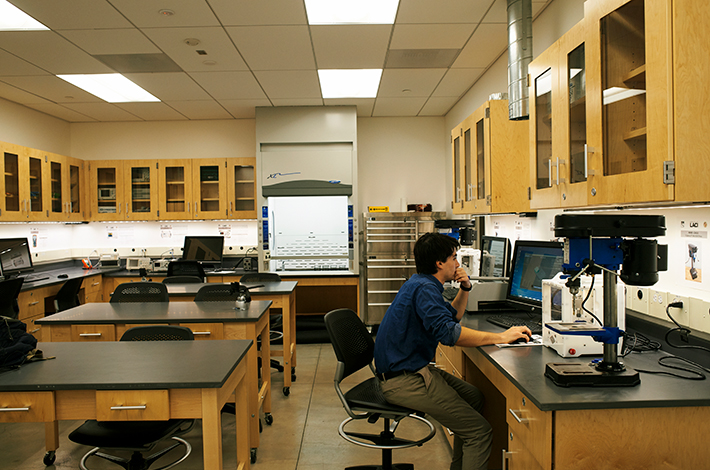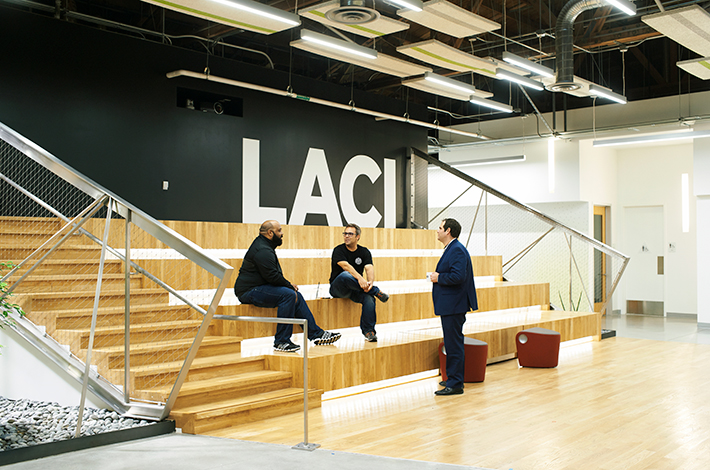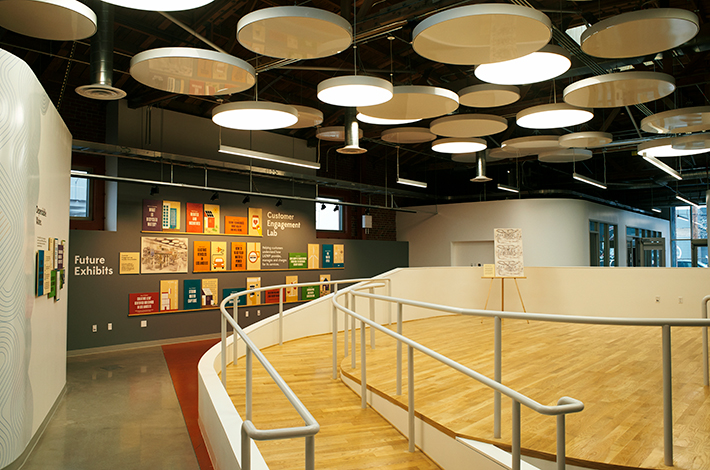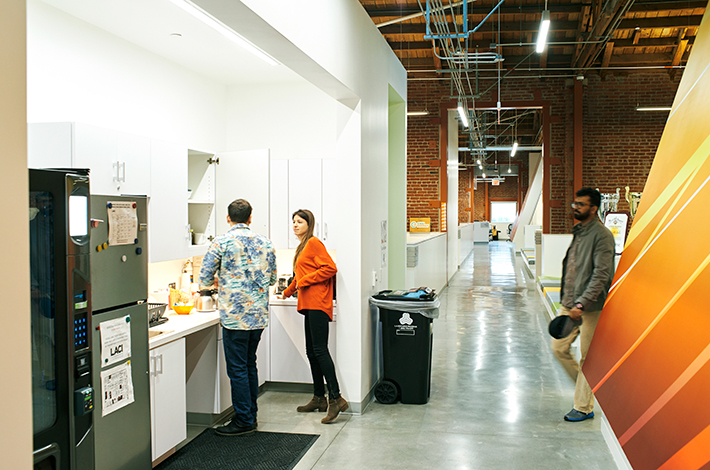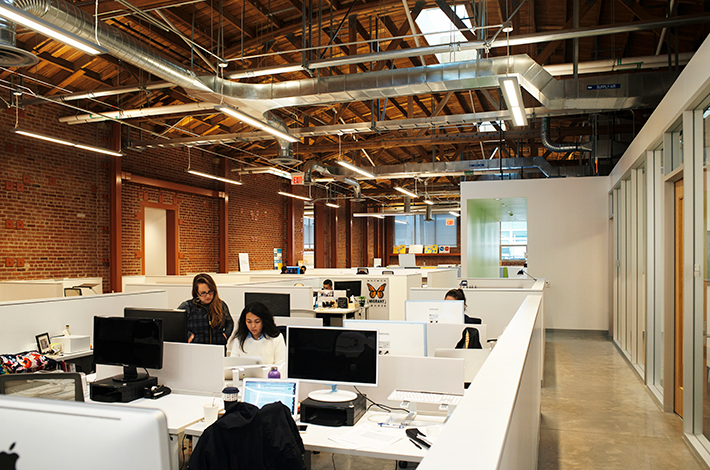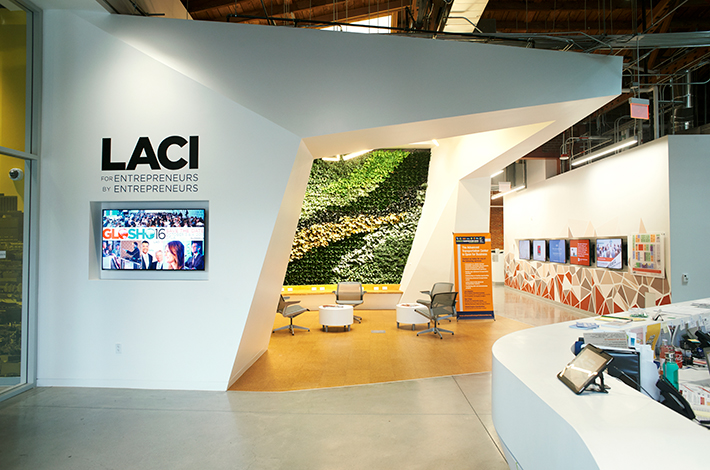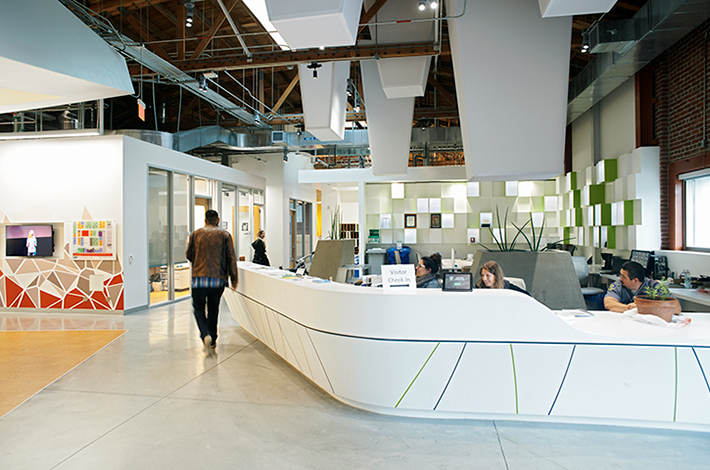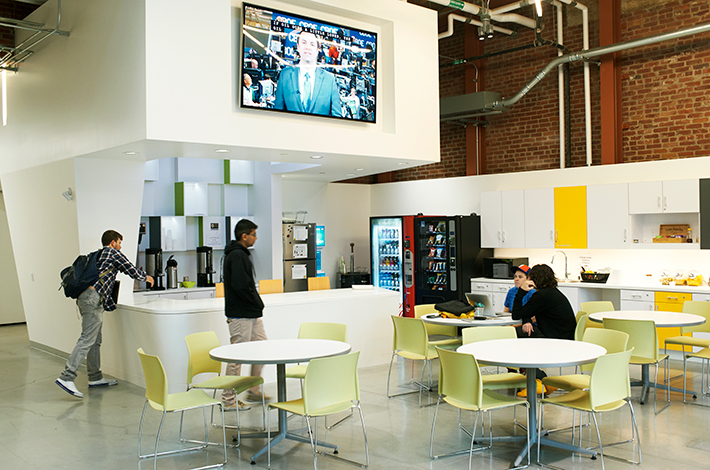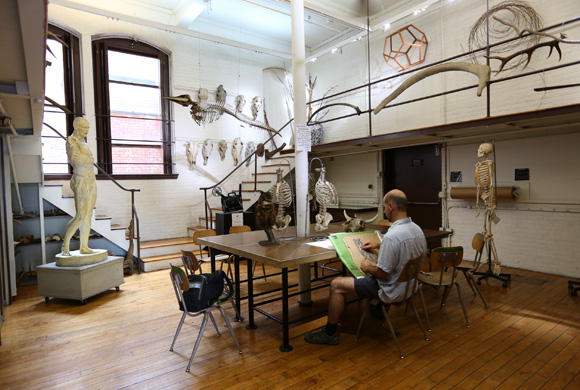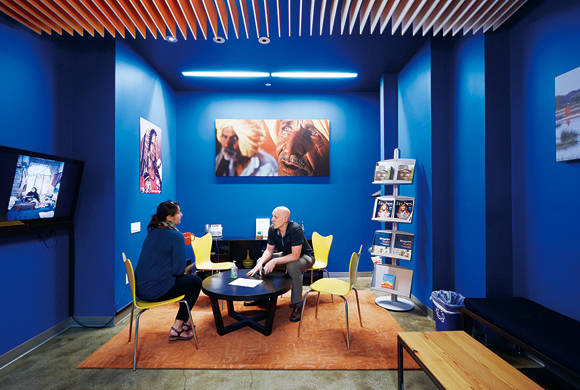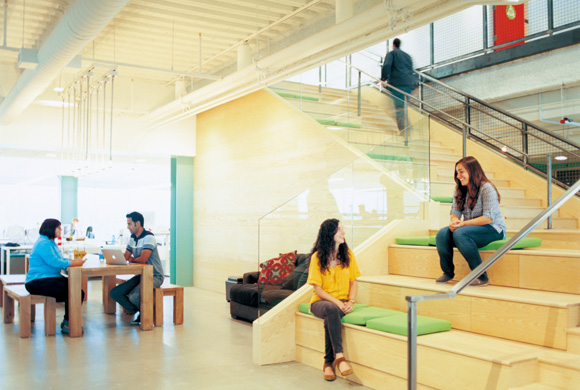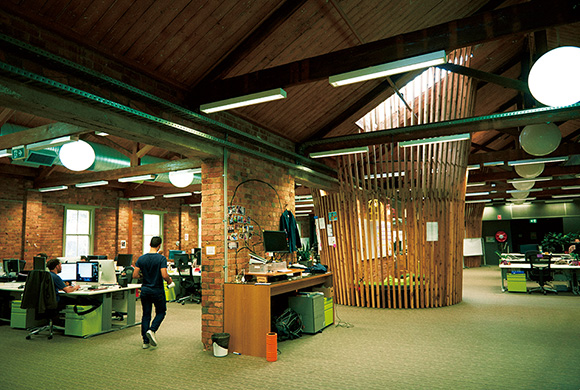Workplace
Feb. 6, 2017
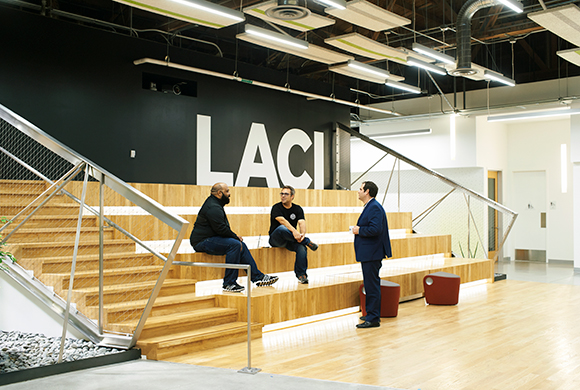
A Los Angeles incubator attracting the world’s cleantech companies
An NPO incubating new cleantech companies
[LACI] Los Angeles, California
In Los Angeles, there is an NPO which has been created to help develop the next generation of environmental businesses. Its name is the Los Angeles Cleantech Incubator (LACI). As the “incubator” implies, LACI has gained fame as an organization that nurtures companies involved in reducing the waste of energy or water, those involved in transportation infrastructure and firms promoting sustainability.
“LACI was established five years ago, in the mayor’s office of the City of Los Angeles,” says Ben Stapleton, Vice President of Facilities and Operations at LACI. “In the thriving manufacturing industry of Los Angeles, the area known as the Cleantech Corridor was established to deal with water, transportation, garbage and other issues, with an attempt to concentrate the cleantech companies here. The establishment of LACI is part of this. Even so, the administration is not handled by Los Angeles City but solely by NPOs. Along with public funds, it is operated with funding from grants through city, federal and private companies such as JP Morgan.”
Mr. Stapleton has a great deal of experience in real estate, and was one of the driving forces behind the La Kretz Innovation Campus, home to LACI’s office and incubation facilities.
La Kretz Innovation Campus boasts a building with an area of some 60,000 square feet (5,600m2), originally built in 1921 as a furniture manufacturing plant. While about 90 percent of the building, including the wooden roof and brick walls, was left in its original state, it was renovated with the addition of 500,000 pounds of iron beams to strengthen the structure. The Los Angeles Department of Water and Power (LADWP) is LACI’s biggest partner and the owner of the building, from which LACI leases it under a contract for property management.
“Right now there are 41 LACI portfolio companies,” Mr. Stapleton says. “Portfolio companies are companies utilizing the collaborative office space in the La Kretz Innovation Campus and receiving LACI guidance and support to help them accelerate to commercialization. We may also help with fund-raising and providing IT equipment. We want to continue to help these companies to get their technology into the market as quickly as possible. From LACI’s establishment to today, we have had a total of 60 portfolio companies raise $80 million in funding and delivering more than $230 million in economic value for Los Angeles. In a comprehensive evaluation, we were ranked third out of 1,200 incubators around the world, so we’re confident that we are doing very well.”
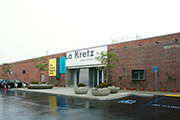 Exterior view of the La Krets Innovation Campus
Exterior view of the La Krets Innovation Campus
Founded: 2011
Employees: approx. 20
http://laincubator.org/
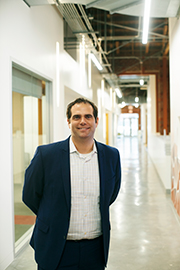 Ben Stapleton, who came to LACI with a background in real estate.
Ben Stapleton, who came to LACI with a background in real estate.
A wide-range group of firms are represented in the portfolio companies. Pick My Solar operates an online bidding and analysis platform to help homeowners go solar; Repurpose uses plants as the raw material for the production of eating utensils, such as spoons and plates; Chai Energy provides an app to monitor residential electric usage; Hive Lighting is working with energy-efficient plasma lighting; and Entrade, which is making a biofuel generator that generates electricity using 100 different biomass sources, such as waste wood—all companies that have or are being incubated at La Kretz Innovation Campus.
“We started the company about four years ago, but the connection with LACI started about three years ago, I believe,” says Chai Energy’s CEO and co-founder, Cole Hershkowitz. “LACI gave us a great deal of support, introducing me to one of our co-founders and giving us advice on business strategies. Los Angeles in now the center of cleantech. A great point about LACI is that many different innovative companies have been brought together here. I believe a great community has been created.”
In addition, LACI is running the Network for Global Innovation (NGIN), a program dedicated to opening markets to cleantech innovators all over the world. NGIN is an alliance of innovation institutions from around the world working together with reciprocal Landing Pad and Market Gateway programs. The program currently has twenty members from Japan, Germany, Finland, Italy, India, China, Mexico, Canada and the United States. NGIN members share best practices, mentors, advisors, investors and cleantech technology development opportunities.
A variety of working spaces are provided at La Kretz Innovation Campus for the corporate tenants, including booths, private rooms and open spaces. A range of different techniques for creating a community of the corporate members have been put in place; many of the companies that are tenants in turn have noted the attraction of these. The seats of companies in a certain business field might be gathered in one place; or, to break free of the corporate structure, a relaxation/break space can be provided where communications can take place. The amphitheater is one such place. One hundred twenty-five people can be accommodated here, with two or three events being carried out weekly. US Vice President Joe Biden attended an event last year.
Another space is known as the Training Center. “LACI is currently receiving applications from 10 to 15 companies a month for incubation,” Mr. Stapleton says. “We only accept about one-tenth of them.” The applying companies are hoping to use the office and event space.
Another notable point is the membership-format Advanced Prototyping Center (APC), which includes an electronics lab, chemistry lab, welding lab, robotics lab, wireless lab, CNC machining, a 3D printing and laser shop, water jet center and assembly bay, as well as training centers. The APC is now open for business and recently launched an Indiegogo Campaign.
It includes all the equipment necessary for companies in manufacturing. It’s very rare for an incubator to have a prototyping lab of this caliber and for a utility such as LADWP to have this kind of fully-equipped facility. LACI’s strength is that it provides a straight flow from accelerating the growth of the company, through creating a service and moving through certification.
Not only are LACI and its resident portfolio companies focused on sustainability, but the La Kretz Innovation Campus itself has as a matter of course an environmentally-friendly design. For example, there is a 175Kw solar power unit in the parking lot that serves a micro-grid system covering the whole building—a system of power supply that does not depend on transmitted power but has a network of plural power generation and power storage equipment. The Campus is also equipped with an ultraviolet-light water purification system, one of the largest to be found in a commercial facility. “We are also have a park on the north side of the building, and distribute water to it as well,” Mr. Stapleton says.
In addition, bioswales in the path at the center of the parking lot naturally filter rainwater into the ground and the campus houses the first public greywater filtration in the country. This very efficient system supports some of the irrigation needs of the building, including the drip irrigation system watering the 2,100 plants that cover the interior walls of the building’s reception area. “We at LACI hope to increase the number of portfolio companies until eventually we have hundreds of firms,” Mr. Stapleton says. “When we talk about finance we think New York, while Boston is the home of biomedical, but I want Los Angeles to be called the city of cleantech.”
Design: John Friedman Alice Kimm Architects (JKAK)
Architect: John Friedman Alice Kimm Architects (JKAK)
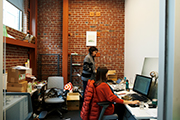 Private rooms for portfolio companies are also available.
Private rooms for portfolio companies are also available.
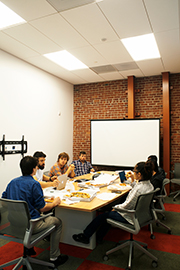 A meeting room, available to tenant companies.
A meeting room, available to tenant companies.
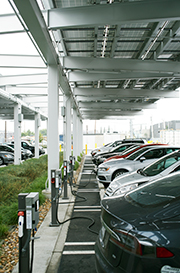 Solar panels cover the roof of the parking. Chargers for electric cars are also provided.
Solar panels cover the roof of the parking. Chargers for electric cars are also provided.


